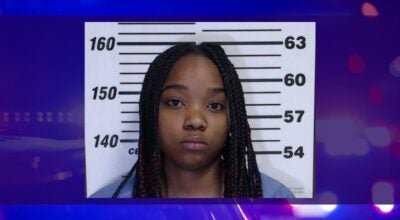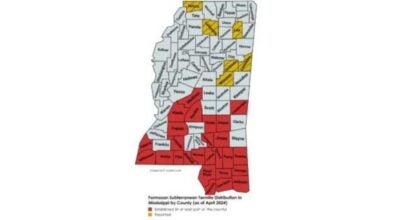Judge tosses evidence-tampering case against ailing ex-deputy
Published 7:19 am Saturday, March 23, 2019
A federal judge on Friday dismissed a federal evidence-tampering charge against an ailing retired Mississippi sheriff’s deputy accused of wrongfully shooting a man to death in 2013.
Federal prosecutors asked Senior U.S. District Judge Neil Biggers earlier this week to end the prosecution of former Bolivar County Deputy Walter Grant.
Assistant U.S. Attorney Robert Mims wrote in a court filing that Grant is too sick to travel to a federal detention facility for a psychological exam to determine if he’s mentally competent to stand trial.
Grant faced up to 20 years in prison and a $250,000 fine if convicted. He has been free on bail and his lawyer has denied he did anything wrong.
The former deputy has acknowledged that he shot Willie Bingham Jr. in a cotton field on the edge of Cleveland. He was tried twice in 2015 on state manslaughter charges, with both trials resulting in mistrials after jurors were unable to reach unanimous verdicts.
Attorney General Jim Hood’s office, which handled the prosecutions, dropped the state court case in 2016.
Bingham was suspected of breaking into cars parked outside an auto parts plant. Grant and other officers pursued a car carrying Bingham and other men.
Bingham’s family said in a civil lawsuit that when the car stopped, Bingham jumped out and ran away, unarmed. Grant caught up with Bingham in the field and shot him once in the back of the head, according to the suit.
Grant told investigators he thought Bingham had a gun, but none was found, despite an intensive search. The family’s lawsuit accused Grant of planting a baton on Bingham’s body.
A response by the Bolivar County sheriff’s office later said the Mississippi Bureau of Investigation and the attorney general’s office concluded in their investigation that Grant planted the baton to make it appear Bingham was armed.
Both Grant and Bingham are black.
The civil suit was settled, but Bolivar County and Cleveland officials have declined requests from The Associated Press to say what they paid the family, saying a judge made the settlement secret.
The federal indictment followed in 2017, but both sides agreed they wanted Grant to be examined by a psychologist.
“The defendant has suffered significant health related events which have affected both his physical and mental capacities,” Mims wrote.
In July, Grant’s lawyer wrote that he had failed to appear for a psychological examination in Mississippi because he had spent four weeks in a Cleveland hospital being treated for sores on his feet that threatened to deteriorate into gangrene.
In September, Biggers wrote that Grant, who is in his early 50s couldn’t travel by “routine airlift” and needed special airplane accommodations to be taken to a detention facility.
Mims wrote in his decision that Bingham’s family had been consulted before prosecutors concluded that “further prosecution of this matter would be impractical and an inefficient use of taxpayer resources.”
Grant’s lawyer didn’t immediately respond to a phone call and email seeking comment.
The Mississippi NAACP , among others, called for Grant’s prosecution.
Prosecutions of police officers for shooting at suspects are relatively rare in Mississippi.
Attorney General Jim Hood’s office is prosecuting former Columbus officer Canyon Boykin, who has pleaded not guilty to manslaughter in a 2015 shooting death that sparked community protests.
His office is also prosecuting former Starkville officer Gary Wheeler, who has pleaded not guilty to aggravated assault in a 2017 shooting of a man in a police chase.






